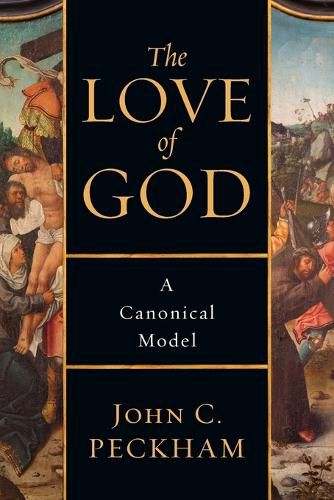Readings Newsletter
Become a Readings Member to make your shopping experience even easier.
Sign in or sign up for free!
You’re not far away from qualifying for FREE standard shipping within Australia
You’ve qualified for FREE standard shipping within Australia
The cart is loading…






This title is printed to order. This book may have been self-published. If so, we cannot guarantee the quality of the content. In the main most books will have gone through the editing process however some may not. We therefore suggest that you be aware of this before ordering this book. If in doubt check either the author or publisher’s details as we are unable to accept any returns unless they are faulty. Please contact us if you have any questions.
Readers’ Choice Award Winner
For God so loved the world …
We believe these words, but what do they really mean? Does God choose to love, or does God love necessarily? Is God’s love emotional? Does the love of God include desire or enjoyment? Is God’s love conditional? Can God receive love from human beings? Attempts to answer these questions have produced sharply divided pictures of God’s relationship to the world. One widely held position is that of classical theism, which understands God as necessary, self-sufficient, perfect, simple, timeless, immutable and impassible. In this view, God is entirely unaffected by the world and his love is thus unconditional, unilateral and arbitrary. In the twentieth century, process theologians replaced classical theism with an understanding of God as bound up essentially with the world and dependent on it. In this view God necessarily feels all feelings and loves all others, because they are included within himself. In The Love of God, John Peckham offers a comprehensive canonical interpretation of divine love in dialogue with, and at times in contrast to, both classical and process theism. God’s love, he argues, is freely willed, evaluative, emotional and reciprocal, given before but not without conditions. According to Peckham’s reading of Scripture, the God who loves the world is both perfect and passible, both self-sufficient and desirous of reciprocal relationships with each person, so that whoever believes in him shall not perish, but have eternal life.
$9.00 standard shipping within Australia
FREE standard shipping within Australia for orders over $100.00
Express & International shipping calculated at checkout
This title is printed to order. This book may have been self-published. If so, we cannot guarantee the quality of the content. In the main most books will have gone through the editing process however some may not. We therefore suggest that you be aware of this before ordering this book. If in doubt check either the author or publisher’s details as we are unable to accept any returns unless they are faulty. Please contact us if you have any questions.
Readers’ Choice Award Winner
For God so loved the world …
We believe these words, but what do they really mean? Does God choose to love, or does God love necessarily? Is God’s love emotional? Does the love of God include desire or enjoyment? Is God’s love conditional? Can God receive love from human beings? Attempts to answer these questions have produced sharply divided pictures of God’s relationship to the world. One widely held position is that of classical theism, which understands God as necessary, self-sufficient, perfect, simple, timeless, immutable and impassible. In this view, God is entirely unaffected by the world and his love is thus unconditional, unilateral and arbitrary. In the twentieth century, process theologians replaced classical theism with an understanding of God as bound up essentially with the world and dependent on it. In this view God necessarily feels all feelings and loves all others, because they are included within himself. In The Love of God, John Peckham offers a comprehensive canonical interpretation of divine love in dialogue with, and at times in contrast to, both classical and process theism. God’s love, he argues, is freely willed, evaluative, emotional and reciprocal, given before but not without conditions. According to Peckham’s reading of Scripture, the God who loves the world is both perfect and passible, both self-sufficient and desirous of reciprocal relationships with each person, so that whoever believes in him shall not perish, but have eternal life.